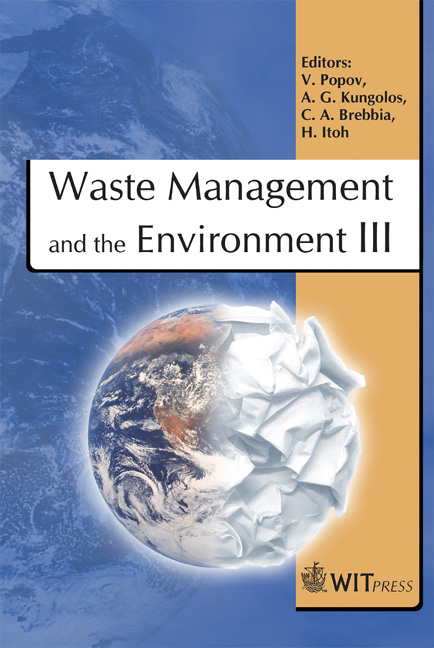Attitudes Of Consumers On E-waste Management In Greece
Price
Free (open access)
Transaction
Volume
92
Pages
10
Published
2006
Size
418 kb
Paper DOI
10.2495/WM060431
Copyright
WIT Press
Author(s)
K. Abeliotis, D. Christodoulou & K. Lasaridi
Abstract
Waste from electric and electronic equipment (WEEE) is the fastest growing waste stream in the European Union. WEEE may cause environmental problems due to its hazardous materials contents. On the other hand, recycling of WEEE is an important issue, not only from the point of waste treatment, but also from the aspect of recovering valuable materials. This paper presents data on WEEE generation and the status of WEEE recycling in Greece, in its current early stage. It also presents the attitudes and behaviour of Greek consumers regarding WEEE management practices. A field survey based on a closed-type questionnaire was conducted. The survey took place in the city of Athens in the first months of 2005. The main results of the study indicate that WEEE generation in Greece will continue to grow and that people are willing to get involved provided that the needed infrastructure is established. Keywords: WEEE, E-waste, Greece, public opinion. 1 Introduction The production of electric and electronic equipment is increasing worldwide. Both technological innovation and market expansion continue to accelerate the replacement of equipment leading to a significant increase of waste electric and electronic equipment (WEEE) [1]. WEEE is recognised as the fastest growing waste stream in the European Union (EU), with estimates of 14-20 kg per person per annum, and it is increasing at about three times higher rate than the average for municipal waste [2]. Currently in the EU-15, WEEE accounts for 8% of all municipal waste [3]. WEEE consists of a wide range of electronic devices that can be classified into three groups, namely white goods, brown goods and information technology (IT) scrap [4].
Keywords
WEEE, E-waste, Greece, public opinion.





